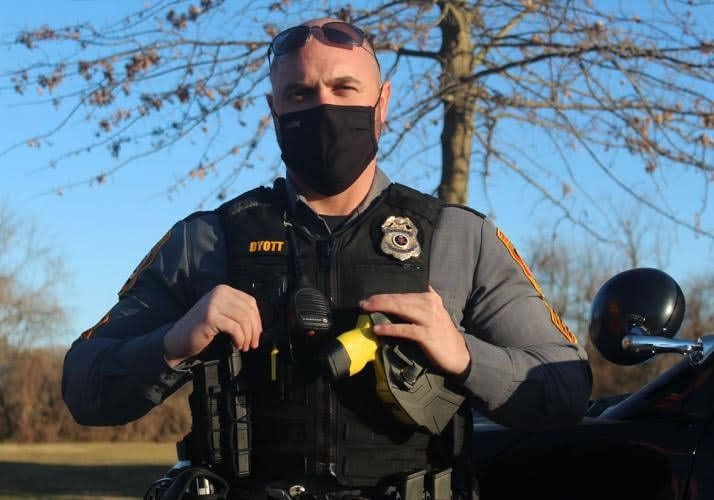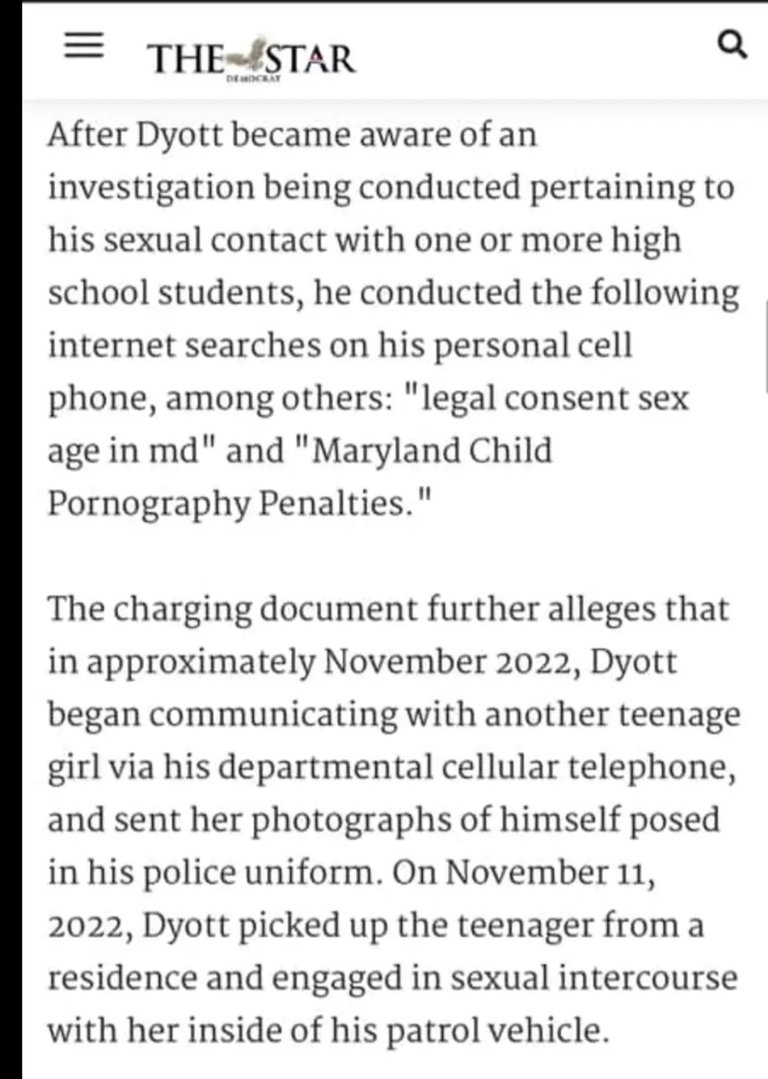Why Local Police Shouldn't Restrict Comments Amid Controversy

Apr 7, 2024 - In a disturbing turn of events, the Maryland State Prosecutor's Office has leveled serious charges against Easton Police Department Sergeant Jason Dyott, alleging misconduct involving sexual relationships with two teenagers. The charges assert that Sgt. Dyott used his department-provided phone to engage in inappropriate communications and sexual encounters with local high school students in Talbot County.
According to prosecutors, Dyott's misconduct unfolded over a period marked by abuse of authority, with Dyott reportedly leveraging his position to initiate sexual relationships with the victims. Charging documents detail disturbing instances where Dyott allegedly engaged in sexual acts while on duty, including an incident where he reportedly "made out" with one victim in his patrol car while in uniform.

The gravity of these allegations underscores the significance of transparent communication and accountability within law enforcement agencies. However, amidst community outcry and concerns, the Easton Police Department's decision to restrict public comments on related social media posts raises critical questions about constitutional rights and public engagement.

Legal precedents, including the open forum doctrine, emphasize the importance of maintaining government-operated spaces, including social media platforms, as forums for public discourse. Restricting comments on posts related to such a consequential case could be interpreted as an attempt to stifle public dialogue and scrutiny—a move that contradicts fundamental First Amendment principles.
In Packingham v. North Carolina (2017), the U.S. Supreme Court affirmed the importance of protecting online free speech by striking down a North Carolina law that prohibited registered sex offenders from accessing social media platforms. The Court recognized social media as a vital platform for individuals to engage in modern public discourse, exercise their First Amendment rights, and access a wealth of information and viewpoints. The decision emphasized that online communication and participation in digital communities are essential components of free speech in the digital age, highlighting the need to uphold constitutional protections for speech and expression in evolving technological landscapes. By invalidating the law, the Court reaffirmed that government restrictions on access to online platforms must be narrowly tailored to serve compelling interests and avoid unnecessary infringements on individuals' fundamental rights to communicate and engage in public discourse online.

While the department's statement underscores a commitment to accountability, questions remain about the accessibility of public discourse on the matter. In the spirit of transparency and constitutional rights, law enforcement agencies like the Easton Police Department play a crucial role in fostering open dialogue and community trust.
Although social media interactions may not fall directly under the purview of the Open Meetings Act, the spirit of this legislation underscores the importance of open discourse and accessibility in modern governance. Social media platforms operated by government agencies serve as digital extensions of public forums, providing spaces for constituents to express their views, share information, and engage with their elected representatives.
In the context of recent events involving Sgt. Jason Dyott of the Easton Police Department, the restriction of commenting on related social media posts raises pertinent questions about the boundaries of public discourse in digital spaces. Upholding principles of transparency and open engagement is essential not only for fostering public trust but also for upholding constitutional values of free speech and civic participation.
In Davison v. Loudoun County Board of Supervisors (2019), the court examined the constitutional implications of government officials' actions on their official Facebook page. The case established that government-operated social media platforms, when used for official communications and public engagement, can be considered limited public forums subject to First Amendment protections. The court ruled that the Loudoun County Board of Supervisors engaged in impermissible viewpoint discrimination by deleting critical comments and blocking users based on their political viewpoints. This decision reaffirmed that government officials cannot censor speech or exclude individuals from public forums based on the content or viewpoint of their expression. The implications of this case underscore the importance of maintaining open and inclusive public discourse on government-managed social media platforms, ensuring that these digital spaces uphold constitutional principles of free speech and viewpoint neutrality in accordance with the First Amendment.
In Robinson v. Hunt County (2021), the federal district court addressed the constitutionality of a Texas county commissioner's actions in blocking a constituent on Facebook after the constituent posted critical comments. The court determined that the county commissioner's Facebook page functioned as a limited public forum, akin to a designated space for public expression and engagement. As such, the court ruled that blocking users from the Facebook page based on their viewpoints constituted impermissible viewpoint discrimination under the First Amendment. This decision reaffirmed that government officials who use social media platforms for official purposes must respect individuals' rights to free speech and refrain from censoring or excluding users based on their expressed opinions or viewpoints. The ruling underscored the importance of maintaining open and inclusive public discourse in digital spaces, ensuring that government-operated social media accounts uphold constitutional principles of free expression and refrain from discriminatory practices that suppress differing viewpoints.